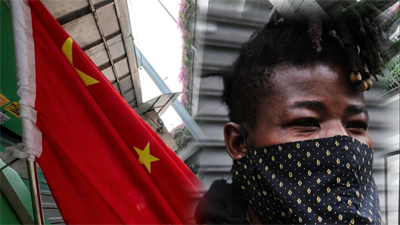Early data from US states shows African Americans are more likely to die from COVID-19, highlighting longstanding disparities in health and inequalities in access to medical care, experts said.
By Alexander Speid, The Westside Gazette
There have been many conspiracy theories regarding COVID-19. Its indiscriminate target of the elderly and health inflicted have forced us all into a pandemic lockdown. Social Distancing has become the norm among tight-knit communities. Changes to our personal health through contingencies by city officials have gone underway. With all that has happened since COVID-19 first came to light, one would believe that it is the time where cooperation is key.
However, some have begun to feel just how large the divide of minorities—specifically the Black community—is in terms of urgent care during this outbreak.
Just yesterday, an article was written for Politico in regards to the nationally unreported cases of COVID-19 in regards to other races and ethnicities. The cases, as of yesterday, have been over 700 thousand, with 39 thousand deaths. These incomplete figures have resulted in difficult responses to the communities that require the most assistance. Of these, the Black community are possibly among the highest, due to pre-existing institutionalized procedures designed to siphon who gets what kind of benefits.
So far, Kansas and Illinois have made their testing date of race and ethnicity public with half of all other U.S. states also releasing some of their data as well.
Kansas accounts that African Americans make up 15 percent of positive COVID cases and 32 percent of deaths, despite them only being percent of the state’s population.
In Illinois, specifically Chicago, protesters gathered Monday outside of Mercy Hospital in an attempt to display how vulnerable the African American community has been due to COVID-19. African Americans made up 70 percent of deaths by the virus, despite being the 30 percent of Chicago population. Chicago Mayor Lori Lightfoot gave a press conference that Monday to target areas that have the largest risk with the help of the Racial Equality Rapid Response Team (RERRT)
“Wile we continue to focus on the immediate challenges related to COVID-19,” Lori said, “this crisis has also doubled-down our longer mission to fight poverty, end racial inequality, and ensure every Chicagoan has access to a bright future we all deserve.”
But with COVID-19 making its rounds across the globe, it has ex-posed the racial inequalities that have plagued the Black community and other minorities.
In Great Britian, 35 percent of the 2,000 critical cases are of minorities, with reasons ranging from them working in low-paid areas, and living in over-crowded households. Discriminatory ethics in the work environment is looked at. Minorities are more likely to face greater con-sequences for minor mistakes, which can affect their pay, and terms of conditions. They are put at higher risk due to the harsher work schedules that force them to be in areas and situations where contracting COVID-19 is only a matter of time.
Last week, McDonalds, China had to issue an apology after a restaurant in Guang-Zhou refused to serve Africans, after it was informed to not allow Black people to enter the restaurant. Though the location had been shut down, this was just a portion of the long-standing racial tension between Africans and Chinese—some intentional, others without precedence. However, due to the increase of imported COVID cases, this has stoked anti-foreigner sentiments in some Chinese cities. Africans have been evicted from their homes by landlords, turned away from hotels, and have been denied basic rights, despite no recent travel history or contact with COVID-19 patients.
“The quarantine is OK if they’re doing the right thing,” says Ms. A., a Ugandan woman living in Guang-Zhou. “But this is discrimination.”
So far, this outbreak seems to bring the social and racial inequalities that continue to create a problem for most minorities into the light. There is no guarantee that once the pandemic blows over, that there will be an improvement to this glaring issue. If it hadn’t been solved during the many other outbreaks and severe plagues of the past, then it is highly unlikely to alter in any form now.
The best we can do now is stay safe, stay secure, wash our hands, and continue this seemingly never-ending fight against institutionalized racism. It all harks to an old saying;
“When white folks catch a cold, Black people get pneumonia.”
